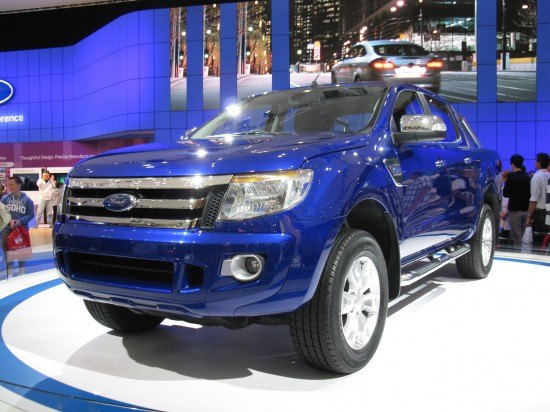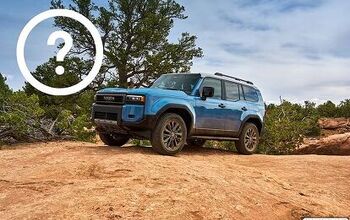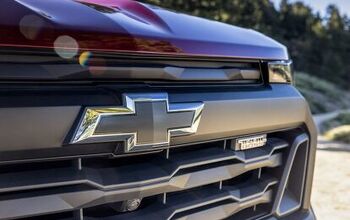Ford Calls For Harmonized US-EU Vehicle Standards, Will Help Niche Vehicles
With a US-EU free trade agreement looming on the horizon, Ford is calling for a harmonization between the US and EU vehicle standards, as well as a removal of tariffs on vehicles between the two entities.
Automotive News reports on some of the positives; niche vehicles could be imported without the expensive homologation process, and production flexibility would be drastically increased if the US accepted vehicles that adhered to the ECE standard as well as America’s own FMVSS regulations. Ford’s Wolfgang Schneider told Automotive News
“It will allow us far more flexibility to produce in the best place,” Wolfgang Schneider, Ford’s European vice president for governmental affairs, told Automotive News Europe in an interview. “Do we need this when we sell 500,000 units of a particular model in a country? No. But you are talking about 20,000 or 30,000, yes, because it enables you to bring in niche products.”
While European car makers and EU officials have expressed reservations about FTAs with Japan and South Korean, the US-EU deal has won widespread support. Ford in particular would stand to benefit, as its “One Ford” plan for a single, harmonized lineup could then be fully integrated (global Ranger and Focus RS, perhaps?).
Worth noting is that Ford stopped short of calling for true harmonization. The level of minutiae that would have to be agreed upon is apparently too daunting for either party to consider, and a likely stumbling block to reform. Instead, Ford suggested “mutual recognition”, which would ostensibly be some kind of reciprocity agreement whereby the US and EU would accept vehicle’s built to either standard.
More by Derek Kreindler


































Comments
Join the conversation
@DenverMike- Upon review, I have to side with BigAl and Robert Ryan wrt the Chicken tax. I humbly admit I was ignorant that it was still in place. A 25% tariff does protect domestically produced trucks from imports. You are correct though in asserting that comparing trucks with a lower CAFE average requirement, to a car, the BMW M3 is nonsensical. There are no barriers to cars other than the goodness to meet the standards and compete. The Chicken Tax effectively prevents importation of light trucks unless tricks are used. Look at the wiki article for details about Transit Connect. BigAL and Robert Ryan, I apparently didn't communicate well that I support global standards, and repeal of the chicken tax, now that you enlightened me to it. While we are at it, let's repeal CAFE and you might see some very nice big cars from America again! I should add, our trucks are not sheltered weaklings. They are very good vehicles and Toyota Nissan sees that in their competition. There was a time when the domestics could only make money on trucks and large cars, but had to build loss making small vehicles here to enable them to meet separate import and domestic fleet CAFE averages. Today, the costs are down so far, even the Chevy Sonic, the only domestically produced small car is profitable. It is a new world in that regard and sound reason to have optimism for their future. btw-other than speedometers, our vehicles have been metric since the 70's. Most cars can swith between the systems with the push of a button.
@doctor olds "BigAL and Robert Ryan, I apparently didn't communicate well that I support global standards, and repeal of the chicken tax, now that you enlightened me to it. While we are at it, let's repeal CAFE and you might see some very nice big cars from America again! I should add, our trucks are not sheltered weaklings. They are very good vehicles and Toyota Nissan sees that in their competition" Now we are talking!!!!! That is the "shove" the US industry needs to become competitive again at a global level.
As part of the California Emissions law (which is followed by maybe a dozen states or so), the CARB actually requires manufacturers to report all warranty claims on emission related components through their useful life, which is 10 years or 150,000 miles. The standard requires reporting if claims exceed 1% and recall action if they exceeed 4%. This is a direct quality related standard. The safety standards,likewise, are a performance standard that does assess the goodness of the vehicle to survive and protect customers in all sorts of crash scenarios. Vehicles have to be engineered very well to meet these standards.
@doctor olds No, Standards do not mean the design of the car or aesthetics can be acceptable. No doubt the Pontiac Aztek and I believe the Ford Edesl were reliable cars but aesthetically disasters. No Standard is going to protect you from that or is a Standard going to protect you from the wrong vehicle being produced at the wrong time. Only management can do that.